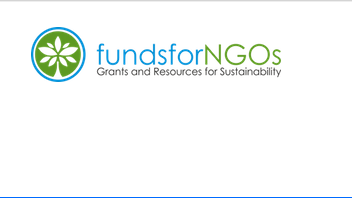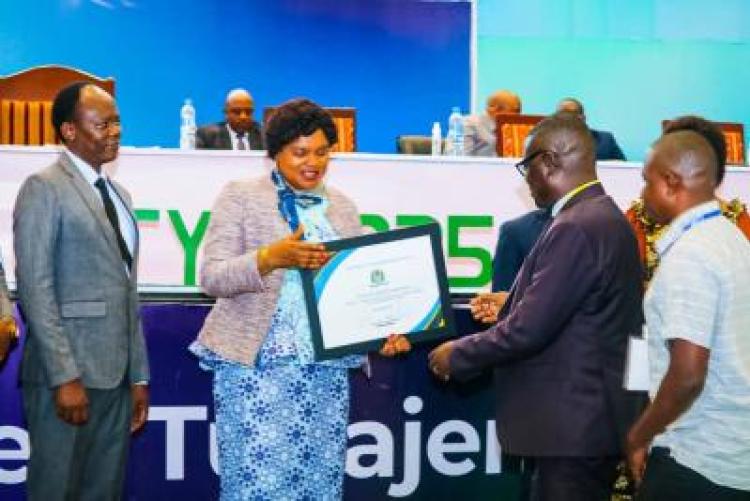Deadline: 21-Sep-23
The European Commission (EC) is providing grants to support climate change mitigation project under the Programme for Environment and Climate Action (LIFE).
Objective
- Projects under the Climate Change Mitigation Priority Area should contribute to the socially just and sustainable transition towards a climate neutral economy by 2050 and to reaching the EU emission reduction target for 2030 to at least 55% compared with 1990 levels.
- Union climate policy and legislation to reduce greenhouse gas emissions focuses in particular on:
- sustainable renewable energy,
- energy efficiency,
- the emissions trading system,
- energy and greenhouse gas intensive industrial production,
- land use, agriculture and forestry,
- increase of carbon sequestration in ecosystems,
- zero and near-zero emission transport solutions and fuel/energy options,
- fluorinated gases and ozone depleting substances,
- carbon capture and use; as well as carbon capture and storage,
- greenhouse gas monitoring and reporting,
- efforts by all sectors of society and economy to reduce greenhouse gas emissions, including public bodies (national, regional and local authorities); private commercial entities; or non-commercial organisations (unions, civil society organisations, educational institutions, consumer groups), and
- behavioural change, also through activities of the European Climate Pact.
Areas of Intervention
- Actions to reduce greenhouse gas emissions in the sectors not covered by the EU Emissions Trading System, including the reduction of use of fluorinated greenhouse gases and ozone-depleting substances
- Actions which enhance the functioning of the Emissions Trading System and which have an impact on energy and greenhouse gas intensive industrial production
- Increase the generation and use of renewable energy and improvement of energy efficiency (as far as not covered by specific calls under the Clean Energy Transition sub-programme)
- The development of land and sea management practices which have an impact on emissions and removals of emissions, conservation and enhancement of natural carbon sinks
Funding Information
- The indicative available call budget is EUR 66,350,000.
- Topic Budget: EUR 30,000,000
Expected Impact
- All LIFE projects will have to report on their expected outputs and impacts taking into account the LIFE Key Performance indicators (KPIs). These KPIs will contribute to evaluating the impact of the LIFE project on an environmental but also socio-economic level (e.g. via actions impacting the local economy and population).
Type of Action
SAPs represent the ‘traditional LIFE projects’ aimed to:
- develop, demonstrate and promote innovative techniques, methods and approaches
- contribute to the knowledge base and to the application of best practice
- support the development, implementation, monitoring and enforcement of the EU legislation and policy, including by improving governance at all levels, in particular through enhancing capacities of public and private actors and the involvement of civil society
- catalyse the large-scale deployment of successful technical and policy related solutions for implementing the EU legislation and policy by replicating results, integrating related objectives into other policies and into public and private sector practices, mobilising investment and improving access to finance.
Eligibility Criteria
- Applications will only be considered eligible if their content corresponds wholly (or at least in part) to the topic description for which it is submitted.
- In order to be eligible, the applicants (beneficiaries and affiliated entities) must:
- be legal entities (public or private bodies)
- be established in one of the eligible countries, i.e.:
- EU Member States (including overseas countries and territories (OCTs))
- non-EU countries:
- EEA countries and countries associated to the LIFE Programme or countries
- the coordinator must be established in an eligible country.
- Specific Cases
- Exceptional funding — Entities from other countries (not listed above) are exceptionally eligible, if the granting authority considers their participation essential for the implementation of the action.
- Natural persons — Natural persons are NOT eligible (with the exception of selfemployed persons, i.e. sole traders, where the company does not have legal personality separate from that of the natural person).
- International organisations — International organisations are eligible. The rules on eligible countries do not apply to them.
- Entities without legal personality — Entities which do not have legal personality under their national law may exceptionally participate, provided that their representatives have the capacity to undertake legal obligations on their behalf, and offer guarantees for the protection of the EU financial interests equivalent to that offered by legal persons.
- EU bodies — EU bodies (with the exception of the European Commission Joint Research Centre) can NOT be part of the consortium.
For more information, visit European Commission (EC).




